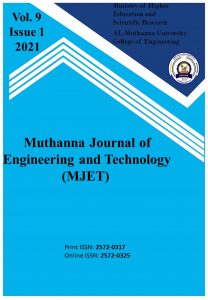MUTHANNA JOURNAL OF ENGINEERING AND TECHNOLOGY (MJET)

Research Article:
Jinan Hassan M. AlAnbakya
Hadeel Saad razoki al-mur’ibb
aUruk University, Baghdad, Iraq
bArchitectural Engineering Department / Al-Muthanna university
E-mail addresses:
jana_arch@yahoo.com
ABSTRACT
Previous knowledge has shown a concept revealing different boundaries and relations of building spaces with its outer shell; which represent the boundaries of these spaces. This concept is called interstitial space which is based on creating an interlocution and communication within this space giving a new understanding of meaning and a new approach in architectural formation. This concept of knowledge description has varied as it is linked once to its nature or again to the built environment levels whether it’s architectural or urban diverged within the academic and social context, as well as the blurring relationship nature of this space with the structural system of the building. Therefore, the problem state of this research, which goal focuses on, is highlighted as “the urge to investigate the concept of interstitial structure characteristics”. Yet the methodology of the research is based on the descriptive and analytical approach consisting of three phases; phases one is to build a theoretical framework about the characteristics of the interstitial space in architecture; second is to conduct a practical study and identify several samples of buildings vary in their structural systems (traditional, structural and space); then analyze data and identify the conclusions of which the interstitial space grows and expands physically and expressively with the presence of the recent constructive systems and the lack of presence of the Interstitial spaced has led to spatial differentiation and closed toward inside especially those designed parametrically and reflect it in the other traditional and structural constructive systems.